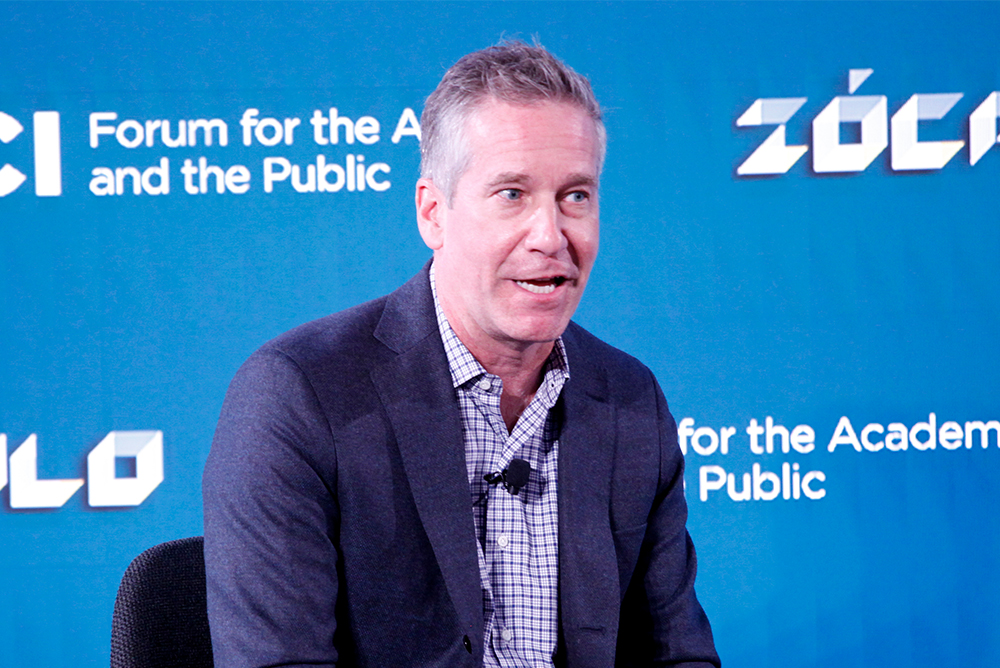
Photo by Aaron Salcido.
Kal Raustiala writes and teaches in the areas of international law and international relations. Since 2007 he has served as director of the UCLA Ronald W. Burkle Center for International Relations. After moderating the Zócalo/UCI Forum for the Academy and Public event “Can Decolonization Explain Everything?,” he joined us in the green room to talk about ChatGPT, creativity and copyright, and his dream dinner guest.
What is your favorite LA freeway?
The 210 East because I feel like when I’m on it, I’m going to the desert or skiing.
You wrote The Knockoff Economy—and did a previous Zócalo event on this subject! What’s your favorite current knockoff?
I’m really fascinated by this big court case currently at the Supreme Court about Andy Warhol using [photographer Lynn Goldsmith’s] Prince photograph. It’s not a knockoff exactly. But I think it raises so many interesting questions about the meaning of art, about appropriation, about transformation. I love that one for that reason, and I’m really eager to see what happens.
If you, personally, could decide, what would you say?
I would allow Warhol—I mean, of course, he’s dead—but I would allow that to go forward. Because I think that being able to create by using the creations of others, in new ways, is an essential element of creation. And I think we’re increasingly boxing up creativity in a way that’s really troublesome and ultimately going to be degrading of our creative culture.
How do you feel about ChatGPT?
It’s kind of amazing. I mean, I find it a little bit frightening. I teach at UCLA. And so right now, the university is kind of freaking out about how to handle students turning in papers using it, turning in exams using it. So it just raises so many new questions. But I’m honestly just kind of blown away by what I’ve seen of it. I can’t say I’ve done a ton with it. But what I’ve seen is really amazing.
If you could make a decolonization stew, what are three ingredients you’d throw into it?
Honestly, I’m flummoxed. Three ingredients in a decolonization stew? I guess I feel like it’s got to be something French, something English… I’m gonna [make it] a martini. So the gin, the vermouth, and I’ll throw in an Italian olive.
Who is your dream dinner guest?
I guess just on my mind because we were talking about South Africa, I once had a chance to see Nelson Mandela speak. And it was like a huge setting. And it was amazing. And I feel like he’s such an interesting historical figure, and something about his personality, his obvious optimism in like faith in human nature. All of that came through, but it was like at a distance. So I think he’s just someone who immediately comes to mind.
What’s the last thing that made you optimistic?
Actually, Zócalo makes me pretty optimistic—the fact that you guys can pull this off and draw in people from all over. I mean, I remember when this was first started, and that you’re still going and still doing this better. Yeah, you know, there’s hope.



